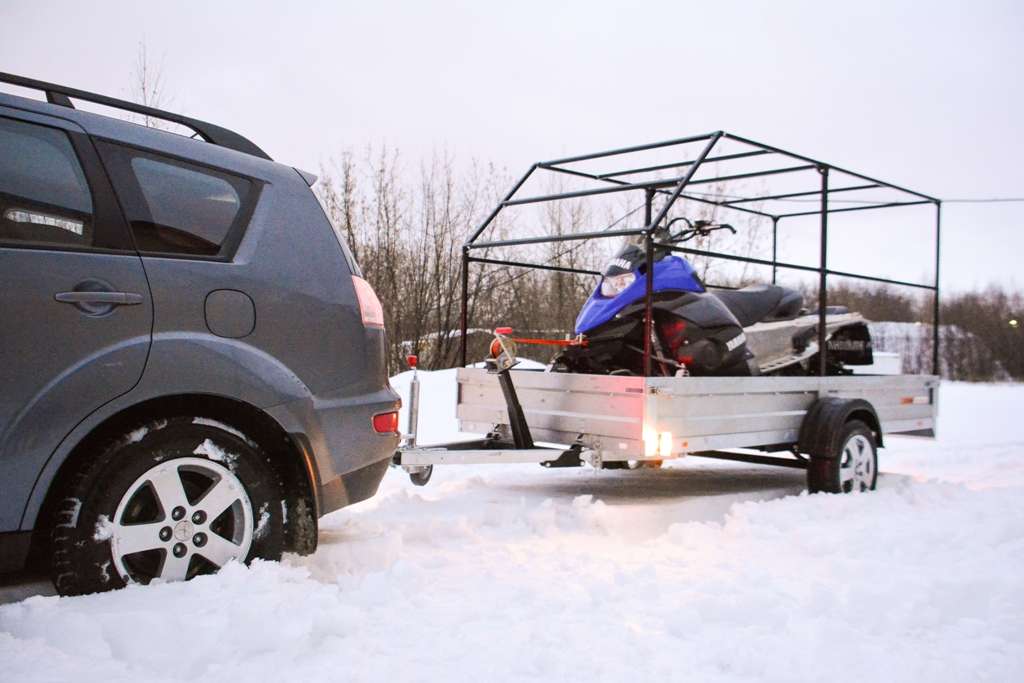
Winter with a Camping Trailer – Guide
Why travel all year round? We have already written about this many times: winter caravanning is a completely different, but no less interesting activity. Winter lands are open to us - it is worth paying attention to countries such as Italy or Austria. Not far from our borders, excellent camping spots can be found in the Czech Republic and Slovakia, and Hungary, as always, offers a heavenly holiday with its many thermal baths. Everywhere you'll find outdoor campsites fully prepared for even the harshest winter conditions. In such places, sanitary facilities are heated, and in ski areas, drying rooms are an additional convenience. There are also indoor pools and entire spa areas. Restaurants and bars are no exception. Even if for various reasons you do not use skis or snowboards, winter auto tourism still offers many entertainments, which we definitely recommend taking advantage of.
Absolute basis. Let's not rely on the cheapest solutions - in an emergency, we need to be sure that both tires and chains will help us get out of trouble. What about caravan tires? The German travel associations recommend (optional) the installation of winter tires. According to tests, a trailer with winter tires affects the length of the braking distance and the stability of the entire package.
Winter motorhome with travel trailer – what should you remember?
1. The basis of any “home on wheels” is. They must be functional, and the installation must have the appropriate certificate. This is a matter of safety for us, our loved ones and neighbors in the camp. Winter versions of trailers have additional insulation to prevent the water in the pipes from freezing. However, remember that with the heat on and temperatures reaching below -10 degrees, there is nothing to worry about - most trailers will handle it just fine. Gaps in insulation can be eliminated using heat shields. RV stores sell special “hoods.” There you will also find additional thermal covers for windows.
2. Gas – the rules for trailers and campers do not change here. . On average, one should assume that one 11-kilogram cylinder will be enough for about two days of heating. However, everything depends on many factors: the set temperature inside, weather conditions outside, insulation thickness, unit volume, additional equipment such as electrically heated floors. Accessories: It is worth adding a system that allows you to connect two gas cylinders at the same time, a heater for heating the gas reducer will be useful, it is worth investing in a scale for the gas cylinder. Thanks to this, we will always know how much gasoline is left in the tank and how long it will last. In foreign campsites there is the possibility of a permanent gas connection. The employee uses an extended hose to connect our reducer instead of a gas cylinder. That's all!
Heating is the most important item on the entire list. The magic of winter caravanning can quickly be ruined by a broken system, so be sure to prepare in advance.
3. In addition to heating, it is no less important for the comfort of your stay. Too much humidity will turn your trailer into a steam room. This is a common occurrence, especially when we hang wet clothes in the trailer. To avoid this, simply open the trailer's windows and doors once or twice a day and ventilate it properly.
4. – This must be done in both the trailer and the camper. In the case of trailers, you need to pay attention to the chimney. In older units it is often mounted on the roof. Accessories: It would be a good idea to bring a broom with a telescopic handle. However, we can drain gray water into a container located outside the trailer - we do not need to have a built-in special tank, additionally heated and insulated. Don't forget to add some antifreeze to it.
5. O is the key point. As with heating, too low voltage in social batteries will only lead to failure of the heating system, water pump, lighting - nothing cool. Fortunately, this problem does not occur in trailers designed for camping. There we always have the possibility of connecting to a 230 V pole. However, remember that you cannot overload the network, for example, by turning on inefficient lights. It is often prohibited to use devices of this type in foreign campsites, and the protection in the power supply only allows you to maintain voltage in the social battery. 230V will also allow us to save gas - the refrigerator will run on electricity.
Have a nice winter holiday!

